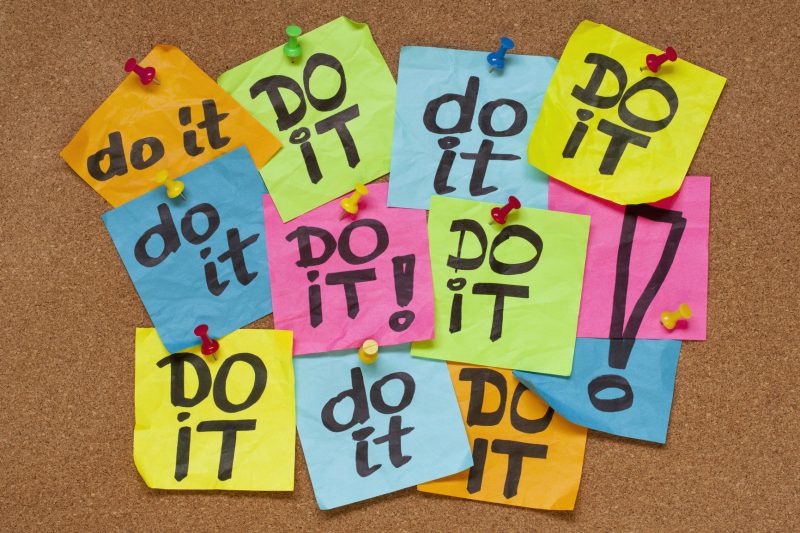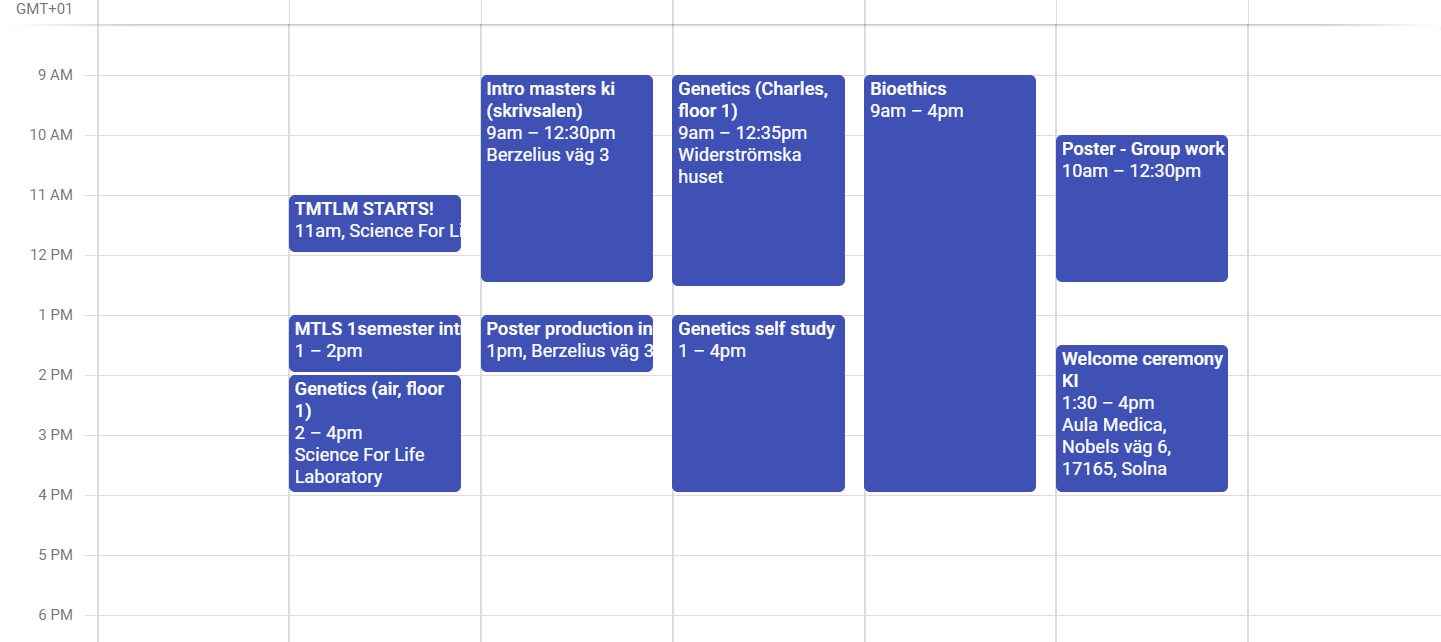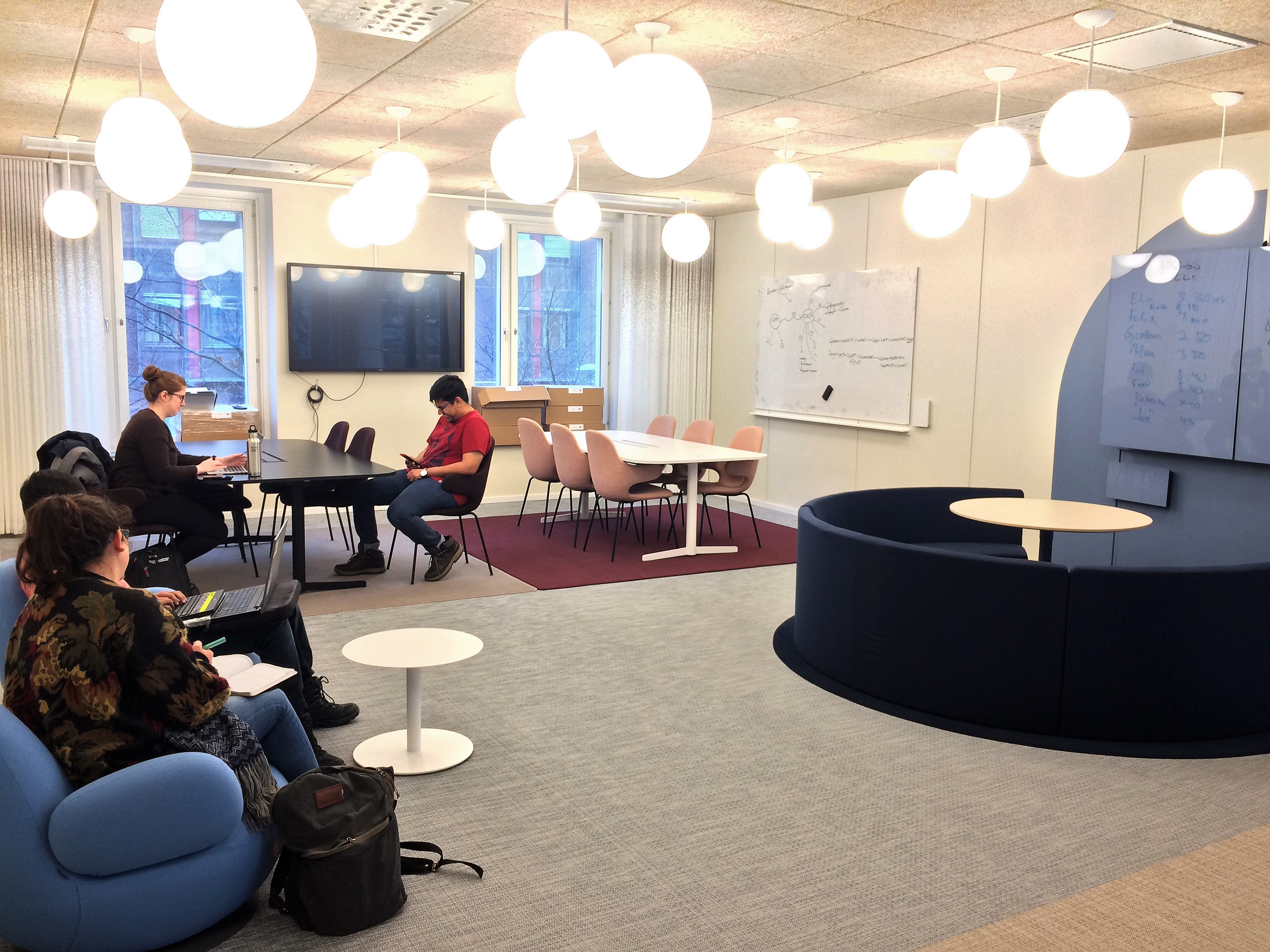
10 Tips to stop procrastinating
We all have been tempted by procrastinating while studying. There’s always that course we don’t really like, or we have spent too many hours in the library… We can even trick ourselves by doing “useful procrastination” so we feel less guilty about setting aside those tasks we don’t like but that have to be done. There are several tips to increase your productivity, here are the 10 that work best for me.
1. Plan ahead
Something that really helps me to finish my assignments and studies on time is to plan ahead. I might be an excessive planner, but the great advantage of planning ahead is that you can see the whole picture of the process: you can estimate how much time you’ll need for each workblock and it can also make you start working early, so you have less stress at the end. It also helps me realize that I actually do have time for my hobbies, meeting friends and resting, which gives me some extra energy to face the task in a happier mood.
At KI even the own-study and group-work time is scheduled, so it is really easy to follow that and be on top of your studies. I didn’t have these in my previous education, so I had to take more responsibility on planning my time, but it’s great to know how much time you should use for out-of-the-classroom activities and when could be a good moment to do them.

First week in September, when the Molecular Techniques in Life Science Programme started
2. Set small goals
If we don’t like a task that we have to do, we will most likely postpone it, and this will only get worse the bigger the task is. One way to fight against putting large tasks aside is to break them into small blocks. For example, if I have to write a review I would divide the work in: look for papers and references to read, read the references and take notes, write a first draft, review the draft and submit. That way I can do a bit of work every day and I won’t be intimidated by it.
3. Set daily/weekly deadlines
Once you have your work divided into small blocks you should set deadlines for them. This will help you follow your schedule and don’t leave everything for the night before. However, there needs to be a balance between the amount of deadlines you set and how much time you assign every workblock. Ideally, deadlines should be concrete, realistic and a right amount (following the Swedish idea of “lagom” 😉 ).

Source: https://pixabay.com/es/users/rawpixel-4283981/
4. Get rid of distractions
There’s no need to say that if you want to be productive you’ll need to avoid peeking into social media: those 5 minute breaks to catch up with Instagram stories always end up being 2 hours beaks watching cute puppy videos. As much as I love cat and puppy videos, whenever I want to be productive I just put my phone aside. If you take it away from your visual field, the temptation of using it will decrease and you’ll finish your work faster.
Some of my friends also use webpage blockers to avoid the classic “I will just take a 5 minutes break and look for X in Amazon”. I’ve never used them before since I don’t usually do online shopping, but let me know if they work for you in the comments 🙂
5. Change your study environment
Whenever I have to study too many hours in a short period of time, I usually change my environment from time to time. For example, if I’m at the library I usually sit in a different place, or I study at home in the morning and at the library on the evenings. This helps me from getting bored of being sitting on the same spot for a long time, and increases my concentration.

One of my favourite study spots at KI Solna.
6. Do the hard tasks first
The harder one task is the more we will procrastinate to avoid working on it and feel bad that we don’t understand it or can’t finish it. If you start working on the hardest task you have (which will usually take the longest time), you will feel very liberated once you finish, and all the other things you need to do will feel super easy. Also, if you need to finish something right before the deadline I would rather do several easy things than one big, hard task.
7. The first 30 minutes of the day are always to work
When you start working on the mornings, avoid the “I’ll take a 5 minute look on Facebook”. If you start working right when you arrive to the library, you won’t stop until you need a break, and by then you would have probably get a lot of things done!
8. Tell other about your goals
This is very simple: if you tell someone about a goal you have, they would ask you how did it go, and you would feel the need to accomplish it. Tell your family or friends about your important deadlines and use that to keep you on time.
9. Get a study buddy
If you have a person working next to you, you’ll work as well. I usually do this when I can’t focus or I’m struggling to find motivation to work. Just by seeing another person being productive I’m also more motivated to work.

Source: https://pixabay.com/es/users/startupstockphotos-690514/
As useful as it can be, I must warn you that it is very hard to be the one saying “fika is over, we should go back to study” 🙁
10. Forgive yourself
Even the most productive people procrastinate from time to time. I think it’s better to accept when we procrastinate and try to think how can we avoid it next time, instead of mentally punishing us for it. That can keep you in a better mood and be on top of your game!
Hopefully this tips will help you to be on top of your game with your studies.
How do you avoid procrastinating? Let me know in the comments 🙂
Email: ines.rivero.garcia@stud.ki.se
LinkedIn: Ines Rivero Garcia

1 comments